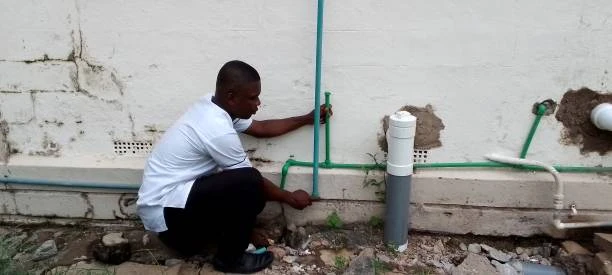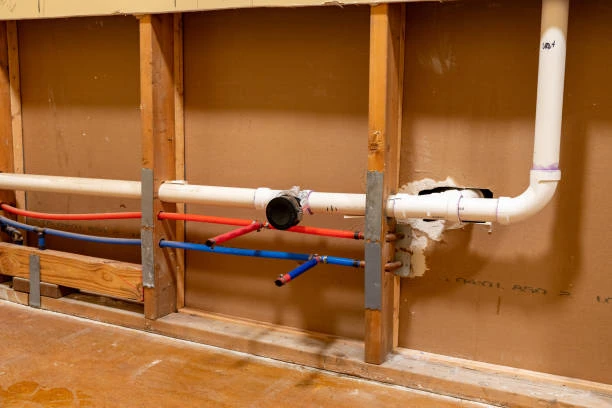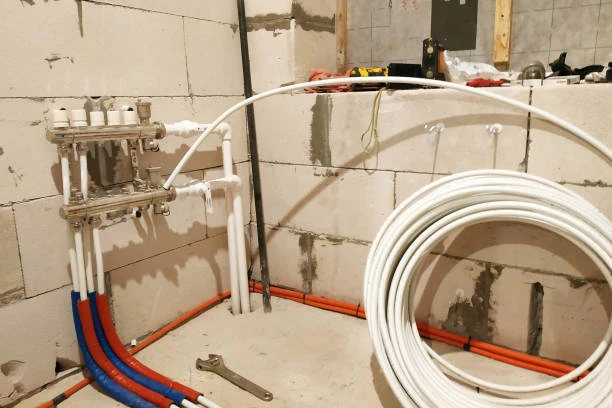Introduction
Water Pipe The state of water infrastructure is a critical concern for many regions, and Penang is no exception. With aging water pipes that have been in service for decades, the need for upgrades has become increasingly urgent. The government has proposed financial assistance to support the upgrading of water pipes in Penang, which could significantly improve the reliability and safety of the water supply. This article explores the current state of Penang’s water infrastructure, the proposed government financing, and the potential benefits of upgrading water pipes for the community.
The Current State of Water Infrastructure in Penang
Penang, a vibrant state in Malaysia, has a rich history and a growing population. However, its water infrastructure has struggled to keep pace with the demands of modern living. Many of the water pipes in use today were installed several decades ago and are showing signs of wear and tear.
Aging Water Pipe
The aging water pipes in Penang are a significant concern. Over time, these pipes can corrode, leading to leaks and breaks that disrupt the water supply. The materials used in older pipes, such as cast iron and PVC, have a limited lifespan and can deteriorate due to environmental factors. As a result, residents may experience reduced water pressure, contamination, and service interruptions.
Water Pipe Quality Issues
In addition to infrastructure concerns, water quality is a pressing issue. Aging pipes can leach harmful substances into the water supply, posing health risks to residents. Ensuring safe drinking water is paramount for the well-being of the community.
Government Financing for Water Pipe Upgrades
Recognizing the urgent need for infrastructure improvements, the government has proposed a financing plan to support the upgrading of water pipes in Penang. This initiative aims to address the challenges posed by aging infrastructure and improve the overall quality of the water supply.

Key Components of Water Pipe the Financing Plan
- Funding Allocation: The proposed plan outlines how funds will be allocated to local water authorities for the replacement and upgrading of water pipes. This financial support is crucial for municipalities that may lack the resources to undertake such significant projects independently.
- Prioritization of High-Risk Areas: The financing plan emphasizes the need to prioritize areas with the most critical infrastructure needs. Low-income neighborhoods and regions with a history of water quality issues will be at the forefront of these upgrades.
- Community Engagement: The government plans to engage with the community to inform residents about the upgrades and gather feedback. This engagement is essential for building trust and ensuring that the needs of the community are met.
- Collaboration with Local Authorities: The plan encourages collaboration between state and local authorities to streamline the upgrading process. By working together, these entities can ensure that projects are completed efficiently and effectively.
Benefits of Upgrading Water Pipe
Upgrading the water pipes in Penang offers numerous benefits for the community, ranging from improved water quality to enhanced public health.
1. Improved Water Quality
One of the most significant advantages of upgrading water pipes is the improvement in water quality. Newer pipes are less likely to corrode and leach harmful substances into the water supply. This upgrade will help ensure that residents have access to clean and safe drinking water.
2. Enhanced Reliability
Upgraded water infrastructure will lead to a more reliable water supply. By replacing aging pipes, the frequency of leaks and breaks can be significantly reduced, minimizing service interruptions for residents. This reliability is essential for daily activities such as cooking, cleaning, and sanitation.
3. Cost Savings
Investing in water pipe upgrades can lead to long-term cost savings for both the government and residents. By reducing the frequency of repairs and maintenance associated with aging infrastructure, municipalities can allocate resources more efficiently. Additionally, residents may see lower utility bills as a result of improved efficiency in the water supply system.
4. Public Water Pipe Health Benefits
Ensuring access to clean drinking water is crucial for public health. Upgrading water pipes can help prevent waterborne diseases and other health issues associated with contaminated water.
5. Economic Growth
A reliable water supply is essential for economic growth and development. Upgrading water infrastructure can attract businesses and investments to the region, contributing to job creation and economic stability. A modern water system is a key factor in fostering a thriving community.
Challenges Water Pipe to Implementation
While the proposed financing for water pipe upgrades in Penang presents significant opportunities, several challenges must be addressed to ensure successful implementation.
1. Funding Limitations
Securing sufficient funding for the entire scope of the project may be challenging. The government must ensure that the allocated funds are adequate to cover the costs of upgrading water pipes across the state.
2. Infrastructure Planning
Effective planning is essential for the successful implementation of water pipe upgrades. Local authorities must conduct thorough assessments of existing infrastructure to identify priority areas for replacement and ensure that projects are completed efficiently.
3. Community Resistance
Engaging the community and addressing any concerns or resistance to the upgrades is crucial. Residents may have questions about the impact of construction on their daily lives, and clear communication will be necessary to build support for the project.
4. Regulatory Hurdles
Navigating the regulatory landscape can be complex. Local authorities must ensure compliance with environmental regulations and obtain the necessary permits for construction, which can delay project timelines.
Conclusion
The government’s proposal to finance water pipe upgrades in Penang represents a significant step toward improving the state’s water infrastructure. By addressing the challenges posed by aging pipes, the initiative aims to enhance water quality, reliability, and public health for residents. As the community looks to the future, investing in modern water infrastructure will be essential for ensuring a safe and sustainable water supply.
FAQs
1. What is the current state of water pipes in Penang?
Many water pipes in Penang are aging and show signs of corrosion, leading to concerns about water quality and reliability.
2. How will the government finance the water pipe upgrades?
The government has proposed a financing plan that allocates funds to local water authorities for the replacement and upgrading of water pipes.
3. What are the benefits of upgrading water pipes?
Upgrading water pipes can improve water quality, enhance reliability, reduce costs, provide public health benefits, and support economic growth.
4. What challenges may arise during the implementation of the upgrades?
Challenges may include funding limitations, infrastructure planning, community resistance, and regulatory hurdles.
5. How can residents get involved in the upgrading process?
Residents can engage with local authorities to provide feedback and stay informed about the upgrades and their impact on the community.


















